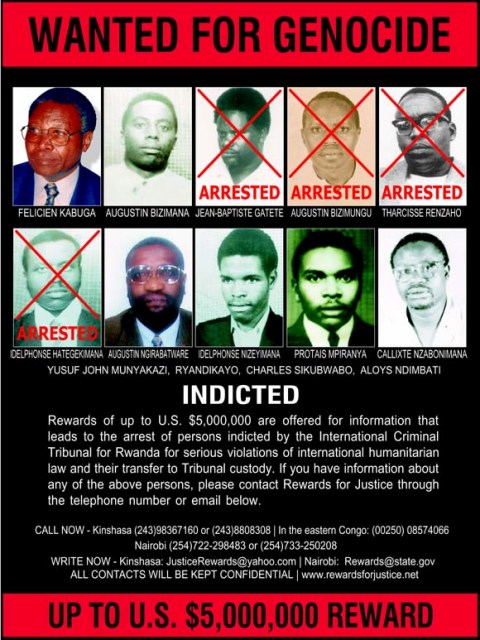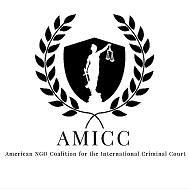John Washburn, convener of AMICC, a coalition of NGOs advocating for the US to join the international court, says that such open hostility to the ICC is now a thing of the past. Recognising that the ICC is here to stay, Washington wants at the very least to engage with it. Meanwhile, a September 2012 poll by the Chicago Council on Global Affairs found that as many as 70 per cent of American respondents thought the US should join the court.Read more
So is the US likely to become a fully signed-up member of the ICC any time soon? Although AMICC has been calling for this for years, Washburn retains a sense of pragmatism.
“In all likelihood, any realistic chance of ratification is several years away at best,” he said. “Nonetheless, preparing in advance for that chance will also require a year or more, since the legal, constitutional, political and bureaucratic obstacles are so severe and complicated.”
Wednesday, January 23, 2013
IWPR Reports on Washington's Growing Ties with ICC, Quotes AMICC Convener John Washburn
The Institute for War & Peace Reporting (IWPR) today released a special report on Washington's growing ties with the International Criminal Court, with extensive quotes from ICC and US officials as well as AMICC's Convener:
Wednesday, January 16, 2013
ICC Prosecutor Opens Investigation into Alleged War Crimes in Northern Mali
By Catherine Mullin
ICC Prosecutor Fatou Bensouda announced today that she has formally opened an investigation into the Situation in Mali since January of 2012. Mali had previously been under preliminary examination by the Court after the case was referred to the ICC by the Malian government on July 18, 2012. After thorough analysis the Prosecutor has found that evidence, admissibility, gravity of potential cases, and interest of justice all support the requirements to open a formal investigation into war crimes allegedly committed in Mali.
“Since the beginning of the armed conflict in January 2012, the people of Northern Mali have been living in profound turmoil,” said Prosecutor Bensouda. “At each stage during the conflict, different armed groups have caused havoc and human suffering through a range of alleged acts of extreme violence. I have determined that some of these deeds of brutality and destruction may constitute war crimes as defined by the Rome Statute.”
As a result of the preliminary examination Prosecutor Bensouda has found there to be reasonable evidence that war crimes have been committed in Northern Mali. Crimes alleged to have happened include murder; mutilation, cruel treatment and torture; intentionally directing attacks against protected objects; the passing of sentences and the carrying out of executions without previous judgement pronounced by a regularly constituted court; pillaging; and rape. The ICC will move to investigate these alleged crimes and bring charges against individuals “who bear the greatest criminal responsibility for the most serious crimes committed.”
Monday, January 07, 2013
New US Law to Permit Rewards for Persons Wanted by ICC, Including Joseph Kony
On January 3, the House passed and sent to the President S.2318, The Department of State Rewards Program Update and Technical Corrections Act of 2012. President Obama signed it on January 15, thus bringing it into law, thereby expanding Rewards for Justice.
Behind its dry and technical-sounding title lie provisions which move
Congress and the Administration perceptibly further toward a closer
general relationship with the International Criminal Court.
The original law began in 1984 and was then directed at promoting arrests in conventional international organized crime such as drug trafficking, and of terrorists. However, in the last two years, Ambassador-at-Large for Global Criminal Justice Stephen Rapp has led a State Department effort to expand the law to include the atrocity criminals whom the ICC tries. The bill which became S.2318 was introduced in the House by Congressman Ed Royce (R-CA), who is chairman of the House Committee on Foreign Affairs in the new Congress. It had 57 bipartisan sponsors and passed the House in July. Senator Kerry, chairman of the Senate Foreign Relations Committee, introduced S.2138 itself in the Senate which passed it on December 20.
The new law declares "the sense of Congress that the rewards program of the Department of State should be expanded in order to ... target other individuals indicted by international, hybrid or mixed tribunals for genocide, war crimes, or crimes against humanity." It then goes on to authorize the State Department to pay rewards for "the transfer to or conviction by an international criminal tribunal ... of any foreign national accused of war crimes, crimes against humanity, or genocide, as defined under the statute of such tribunal."
Two provisions of the law show a continuing wariness about the ICC. One requires that 15 days before announcing a reward for the arrest of a particular foreign national accused of those crimes, the State Department must submit a report to Congress explaining why the arrest would be in the national security interest of the United States. The other declares that the law does not authorized activities precluded under the American Servicemembers' Protection Act.
The worldwide attention to the crimes of Joseph Kony, leader of the Lord's Resistance Army, and the previous individual laws referring to the ICC's work on specific cases were among the elements of the impetus for this new law. A future post will analyze the trends behind its passage, and its importance for our current advocacy and our strategy for the future.
The original law began in 1984 and was then directed at promoting arrests in conventional international organized crime such as drug trafficking, and of terrorists. However, in the last two years, Ambassador-at-Large for Global Criminal Justice Stephen Rapp has led a State Department effort to expand the law to include the atrocity criminals whom the ICC tries. The bill which became S.2318 was introduced in the House by Congressman Ed Royce (R-CA), who is chairman of the House Committee on Foreign Affairs in the new Congress. It had 57 bipartisan sponsors and passed the House in July. Senator Kerry, chairman of the Senate Foreign Relations Committee, introduced S.2138 itself in the Senate which passed it on December 20.
The new law declares "the sense of Congress that the rewards program of the Department of State should be expanded in order to ... target other individuals indicted by international, hybrid or mixed tribunals for genocide, war crimes, or crimes against humanity." It then goes on to authorize the State Department to pay rewards for "the transfer to or conviction by an international criminal tribunal ... of any foreign national accused of war crimes, crimes against humanity, or genocide, as defined under the statute of such tribunal."
Two provisions of the law show a continuing wariness about the ICC. One requires that 15 days before announcing a reward for the arrest of a particular foreign national accused of those crimes, the State Department must submit a report to Congress explaining why the arrest would be in the national security interest of the United States. The other declares that the law does not authorized activities precluded under the American Servicemembers' Protection Act.
The worldwide attention to the crimes of Joseph Kony, leader of the Lord's Resistance Army, and the previous individual laws referring to the ICC's work on specific cases were among the elements of the impetus for this new law. A future post will analyze the trends behind its passage, and its importance for our current advocacy and our strategy for the future.
 |
| A US State Department poster announcing rewards for individuals wanted by the UN International Criminal Tribunal for Rwanda. |
Subscribe to:
Posts (Atom)

